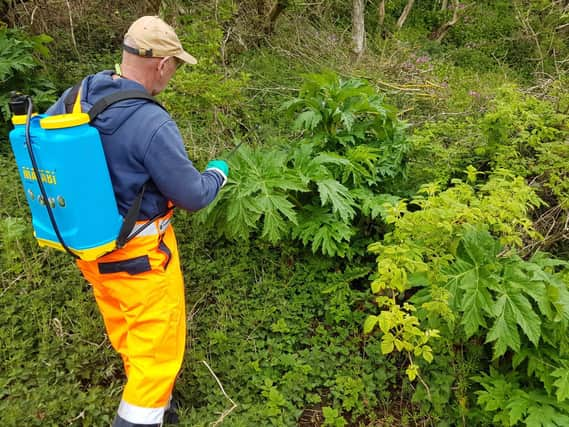Borderers asked to join in toxic plant hunt


Borders environmental charity, Tweed Forum is using Invasive Species Week (May 24-30) to appeal to members of the public to report sightings of giant hogweed.
Resembling a huge cow parsley plant when mature, giant hogweed can grow up to 16ft tall and has toxic sap which can cause severe burns and blistering if it comes into contact with the skin.
Advertisement
Hide AdAdvertisement
Hide AdIt should not be touched by members of the public, but Tweed Forum is hoping that anyone who spots one in the spring and summer will contact the organisation so its specialist team can come and deal with this notorious pest.
Tweed Forum director Luke Comins said: “Every year, our team walks along hundreds of miles of watercourse and deals with thousands of non-native plants which threaten our local ecosystems, communities and tourism industries.
"The help of the Borderers in reporting invasive species is invaluable and we hope that they will keep a lookout again this year and inform us of any sightings so we can continue in our quest to eradicate these problem plants.”
While previously most common along riverbanks, Giant Hogweed can now be found in many other locations including woodland, verges and gardens.
Advertisement
Hide AdAdvertisement
Hide AdJapanese Knotweed and American Skunk Cabbage will also be tackled in the coming weeks and months.
Anyone spotting an invasive plant species should email Tweed Forum at [email protected] including, if possible, a photo of the plant plus a grid or what3words reference.